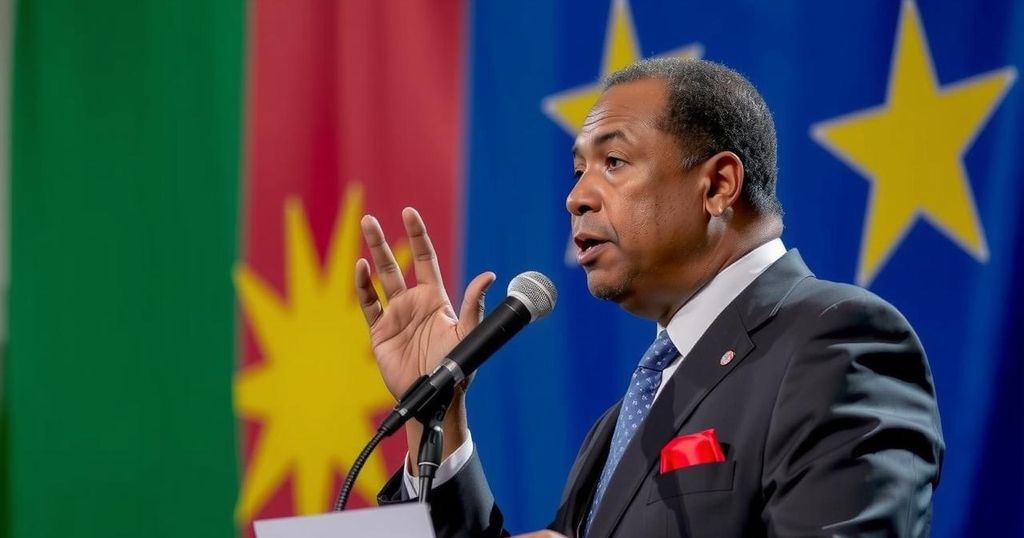Mauritius Prime Minister Pravind Jugnauth has conceded defeat in the legislative elections, with opposition leader Navin Ramgoolam poised to return as prime minister. This election was influenced by a wire-tapping scandal and public demands for governance reforms amid concerns over corruption. The election results are anticipated to clarify the political future as both coalitions focused on economic relief for Mauritians facing high living costs.
Mauritius Prime Minister Pravind Jugnauth has acknowledged a significant defeat for his coalition in the recently contested legislative elections, thereby enabling the opposition to potentially assume power. Although final election results have yet to be disclosed, opposition leader Navin Ramgoolam is on track to reclaim the prime ministership for a third term under his Alliance of Change coalition. Jugnauth stated, “The people have chosen another team to lead the country” and expressed respect for this democratic choice while wishing prosperity for the nation.
Delays in vote counting arose due to some election day incidents as officials transported ballot boxes, but expectations were set for results to be announced shortly. The winner-takes-all system typically favors single coalitions in Mauritius’s National Assembly elections, with 62 of the 70 seats up for contest.
The electoral landscape was made even more complex by a recent wire-tapping scandal that involved the unauthorized release of conversations among various public figures, prompting a temporary social media ban ahead of voting. Both coalition campaigns emphasized commitments to alleviate the cost-of-living challenges faced by Mauritian families, with the Alliance of Change proposing economic relief measures and reforms to enhance governance.
Ramgoolam, a political legacy in his own right and son of Mauritius’s first prime minister, forecasted victory confidently, expressing a sentiment of liberation among the populace. Recent years have seen Mauritius enjoy remarkable stability and growth, yet concerns regarding governmental integrity and corruption have emerged, casting a shadow over its democratic achievements.
Mauritius has a history of robust democratic processes since gaining independence from Britain in 1968. The political landscape remains dominated by family dynasties, notably the Jugnauth and Ramgoolam families. The country’s economy is buoyed by substantial sectors including tourism, financial services, and textile manufacturing. While Mauritius is celebrated for its economic stability and growth, issues of governance, transparency, and corruption have come to the forefront in recent years, prompting public demand for electoral reforms and increased accountability. The recent election further highlights these dynamics, as it was marred by a wire-tapping scandal that shed light on potential lapses in civil liberties.
In conclusion, the electoral defeat of Prime Minister Pravind Jugnauth signifies a pivotal moment for Mauritian politics, with the potential ascendance of Navin Ramgoolam’s Alliance of Change representing a shift in leadership amidst ongoing concerns about governance and civil liberties. The aftermath of this election will likely be characterized by scrutiny of the political landscape and the implementation of promised reforms aimed at supporting the Mauritian populace in navigating economic challenges.
Original Source: www.bellevueheraldleader.com






